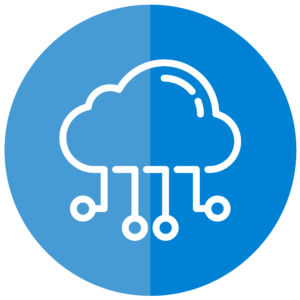Blockchain hasn’t gained the same level of public attention as other technologies such as AI, cloud services, and IoT technologies, yet it’s becoming a powerful force for change across the African continent. Blockchain’s unchangeable digital system helps maintain clarity, easy tracking, and credibility.
In places where keeping data reliable and being accountable is essential, it is now making a real impact in healthcare, education, property records, land administration, and supply chain management.
When it comes to technology and healthcare, blockchain technology in healthcare allows hospitals and clinics to securely manage health records and at the same time improving access and coordination. Keeping track of information of electronic patients records ensures sensitive medical information, helps prevent fraud, and improves overall care.
As Africa embraces digital transformation , blockchain’s integration with technologies like Artificial intelligence and IoT will reshape the way organizations keep, check, and exchange information internationally. This digital shift shows how healthcare and technology are coming together to safeguard sensitive information.
Hurdles Facing Blockchain in Africa
While blockchain demonstrates significant promise as a transformative technology Able to improve clarity, safety, and productivity in various industries beyond finance, its adoption in Africa is still facing a An intricate set of challenges that are very similar to the kinds of obstacles other emerging technologies have historically confronted; these challenges range from infrastructural limitations and connectivity issues to regulatory uncertainty and a shortage of skilled personnel, and understanding them is critical for anyone looking to explore blockchain solutions in the African context because without addressing these issues, even the most promising blockchain initiatives may struggle to achieve their intended impact.
1. Infrastructure, Power Supply, and Connectivity – In many African countries like Nigeria, and Kenya where there’s often power outages, rolling blackouts, and unstable power grids are frequently observed. These interruptions can seriously disrupt blockchain operations, making it tough to verify transactions and keep nodes in sync. Consequently, this may undermine the confidence, reliability, and efficacy of blockchain networks engineered to deliver tamper-proof records, real-time information exchange, and decentralized governance across diverse sectors, including healthcare, agriculture, and supply chain management.
2. Rural Connectivity – In areas beyond metropolitan regions, there’s a significant issue with poor or even nonexistent internet access in remote and rural areas. This lack of connectivity really hampers the adoption and growth of blockchain technology, creating a digital divide. People and organizations who are outside the major cities can’t fully engage with blockchain systems.
3. Legacy Systems –Many organizations across Africa are still stuck using obsolete hardware, and under-performing documentation systems. This May develop Roadblocks while adopting blockchain technology. Modernizing these platforms can be a challenging task. It demands not just a hefty financial investment but also training for employees and a complete redesign of processes.
If there’s no careful planning in place, efforts to integrate blockchain with these old systems might not only fall short of expectations but could also disrupt current operations or lead to a half-hearted adoption that undermines the reliability and integrity of blockchain’s data-tracking and verification capabilities.
Supply Chain Transparency in Africa
- Why Transparency Matters and the Challenges in Supply Chain Management
Supply chain management transparency is essential in African countries to make sure that ethical practices, protect the environment and promote economic growth.
- Complex Supply Chains
- Weak Governance
- Limited Awareness
- Lack of Infrastructure
- Driving Forces for Transparency
Various factors are encouraging African supply chain activities to be more transparent :
- International Regulations – It plays an essential role in promoting transparency and accountability in African supply chains. These regulations stop unlawful activities such as deforestation and child labor which are accountable for activities across the supply chain.
- Technology Adoption – It is transforming supply chain management transparency in Africa by providing modern tools that make it easier to track goods and share data securely.
- Digital Platforms
- Satellite Monitoring
- Blockchain
Retail Supply Chain Management and Operations Across Africa
- Obstacles Facing Retail Supply Chain Management
Retail supply chain management in Africa faces several hurdles that make smooth operations difficult. Like internet connectivity, disrupts deliveries and prevents the adoption of modern retail strategies.
Subpoints:
- Fragmented Infrastructure
- Complex Intermediary Networks
- Informal Sector Dominance
- Economic Instability
2. Opportunities and Trends
There’s a lot of potential to make retail supply chains in Africa better. The Companies are working to create supply chain management that can restore resilience from disruptions and also meet higher environmental and social expectations.
Subpoints:
- Digitalization and Technology
- AfCFTA
- Strength and Longevity
- Integration across supply chain stages and across sectors
3. Future-Oriented Strategic Priorities
Africa using modern technologies helps improve visibility, efficiency, and decision-making based on data. Teaming up with partners also makes networks stronger and helps avoid slowdowns.
- Integration of Technology
- Enhanced Collaboration
- Strategic Diversification
- Policy and Regulatory Support
How eTraverse Provides Solutions
eTraverse is a digital platform designed to make supply chain management across Africa easier by adding value as visibility and traceability. eTraverse offers tools for tracking goods in real-time, tackling issues like fragmented infrastructure, and the prevalence of informal sectors.
For retail supply chain management , eTraverse brings together Next-generation technologies to enhance delivery, logistics, and inventory management.
Conclusion
Blockchain technology is shaking things up across Africa, in various industries like healthcare, education, land administration, and supply chain management. By offering secure and tamper-proof ways to record and share information, blockchain boosts transparency, accountability, and efficiency. Many organizations have adapted blockchain technology to match modern technology. While it has overcome all his barriers and unlocked blockchain technology.
Contact Us Today













